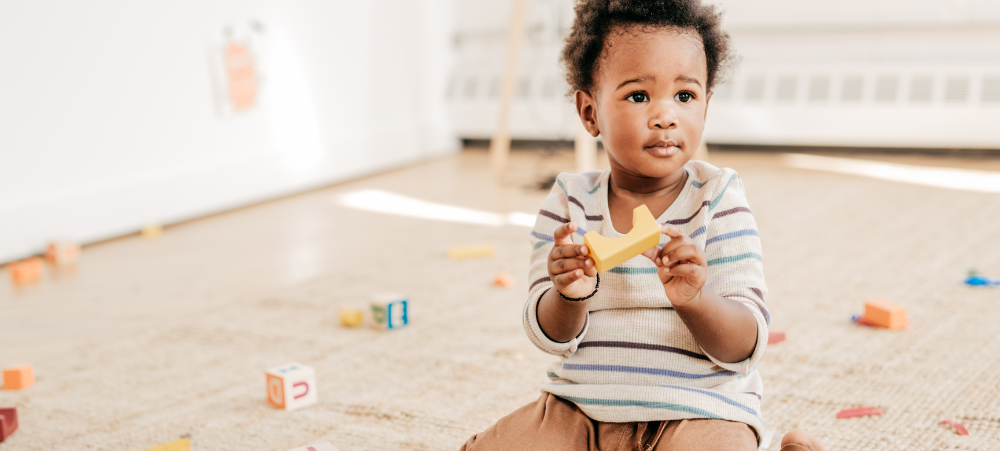“Why is she throwing her shoe across the room?”
“Why is ‘no’ the only word he knows?”
“Why is bedtime suddenly a battle?”
If these questions sound familiar, take a deep breath: You’re parenting a toddler — and yes, most of what you’re experiencing is “just a phase.”
But these phases aren’t random. Behind every outburst, clingy spell, or wild mood swing is a tiny brain undergoing massive growth. When we look at toddler behaviour through a developmental lens, things start making a lot more sense (and feel a little less personal).
🧠 What’s Going On in the Toddler Brain?
Between ages 1 and 4, your toddler’s brain is in overdrive, especially in areas responsible for:
- Language development
- Emotional regulation
- Motor skills
- Problem solving
- Social awareness
During this time, the prefrontal cortex — the part of the brain responsible for impulse control and reasoning — is still very underdeveloped. So when your toddler grabs, screams, or refuses to share, they’re not being “bad” — their brain simply can’t handle big feelings yet.
“Toddlers aren’t giving us a hard time. They’re having a hard time,” says Dr. Mona Delahooke, child psychologist and author of Brain-Body Parenting.
📌 Common “Phases” Explained
Let’s break down some typical toddler behaviours — and what they often mean.
😤 Tantrums
🧠 Sign of emotional overload and limited self-regulation. Toddlers don’t yet know how to calm themselves down.
🚫 Constant “NO!”
🧠 Assertion of independence. Saying no is a toddler’s way of exploring autonomy.
🧸 Clinginess
🧠 A natural response to separation anxiety or changes in routine. It’s about seeking safety, not manipulation.
🌀 Repetition (same book, same snack, same routine)
🧠 Predictability helps toddlers feel secure in a world full of change. Repetition is a comfort strategy.
🥕 Picky Eating
🧠 A normal part of development as toddlers exert control and develop food preferences.
🛏️ Sleep resistance
🧠 A mix of separation anxiety, fear of missing out, and growing cognitive awareness.
💡 How to Support Your Toddler Through These Phases
1. 🧘 Stay Calm (Even When They Aren’t)
Your regulation helps them learn theirs. Narrate what’s happening calmly and offer reassurance.
2. 💬 Use Simple Language
Toddlers understand far more than they can say. Speak in short, clear sentences when setting boundaries or offering comfort.
3. 🔄 Offer Choices, Not Ultimatums
“Do you want the red cup or blue cup?” lets them feel in control without turning into a power struggle.
4. 🕰️ Predictable Routines
Routine reduces anxiety and helps toddlers feel safe. Even a simple “first/then” structure works wonders.
5. 🧠 Validate Their Experience
Instead of “You’re fine,” try: “That was a loud noise — it surprised you!” Naming emotions builds emotional intelligence.
🚩 When to Seek Support
While most tricky behaviour is developmentally normal, consider speaking to a paediatrician or child psychologist if:
- Tantrums are violent or last longer than 30 minutes regularly
- Your toddler shows no interest in interacting with others
- There’s a sudden, extreme regression in speech or behaviour
- You feel overwhelmed or unsure how to help
Sources:
- American Academy of Pediatrics – healthychildren.org
- Dr. Mona Delahooke – Brain-Body Parenting
- Center on the Developing Child, Harvard University – developingchild.harvard.edu
- Zero to Three – zerotothree.org
We understand that there are many aspects that encompass a Mother, Father or Child and strive toward providing resources and services that accommodates this.
Our content is aimed to inform and educate families on issues starting from pregnancy through to the challenges of the teen-age years.
- Say Hello to the Ultimate Holiday Brunch Bite - December 17, 2025
- Tiny Toons Looniversity Returns: Meet the Voice Behind Plucky and Hamton! - December 12, 2025
- From Pain to Possibility: Panado®’s New Marketing Campaign, Highlights The Joy Of Pain Relief - December 10, 2025





